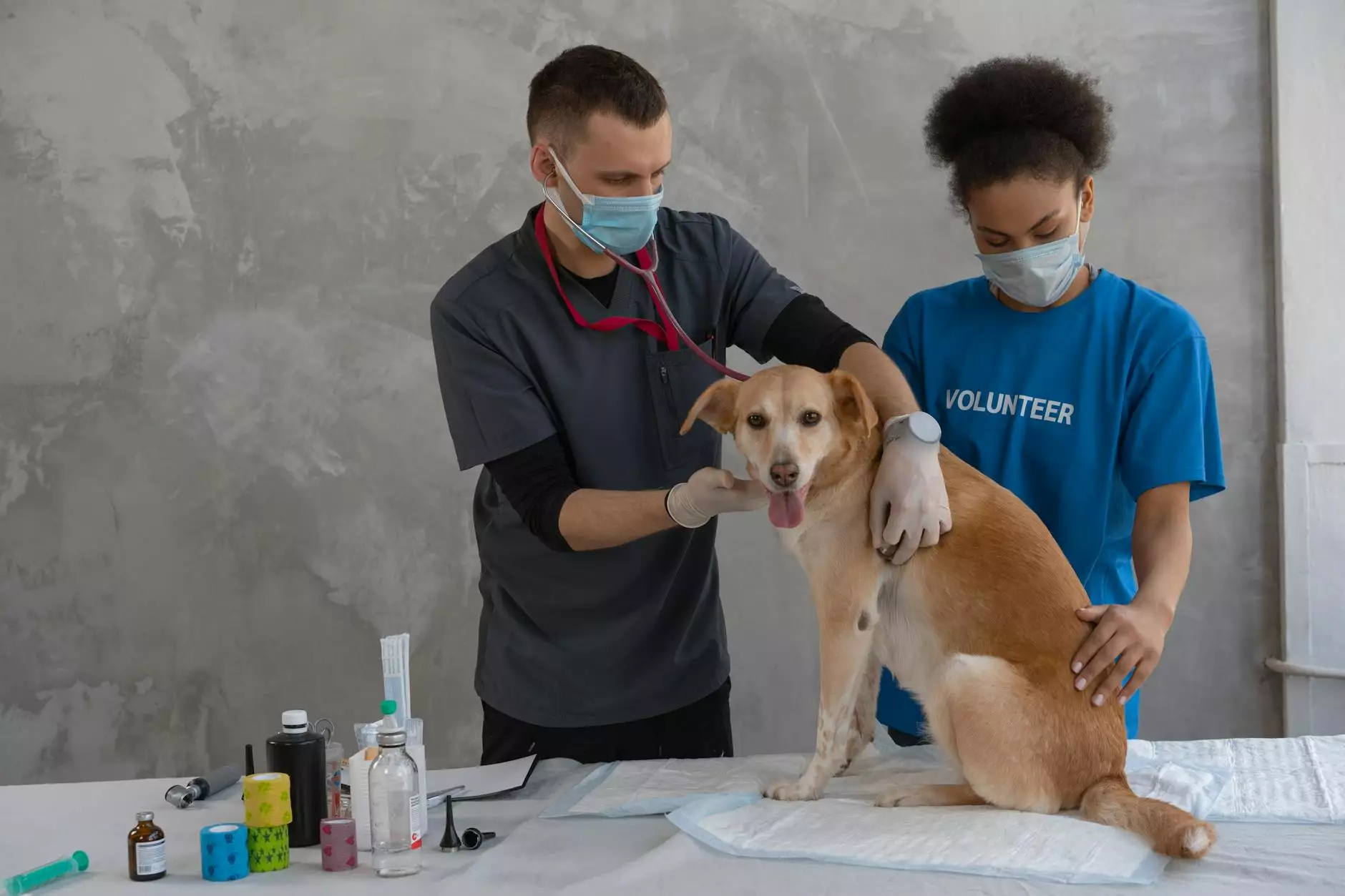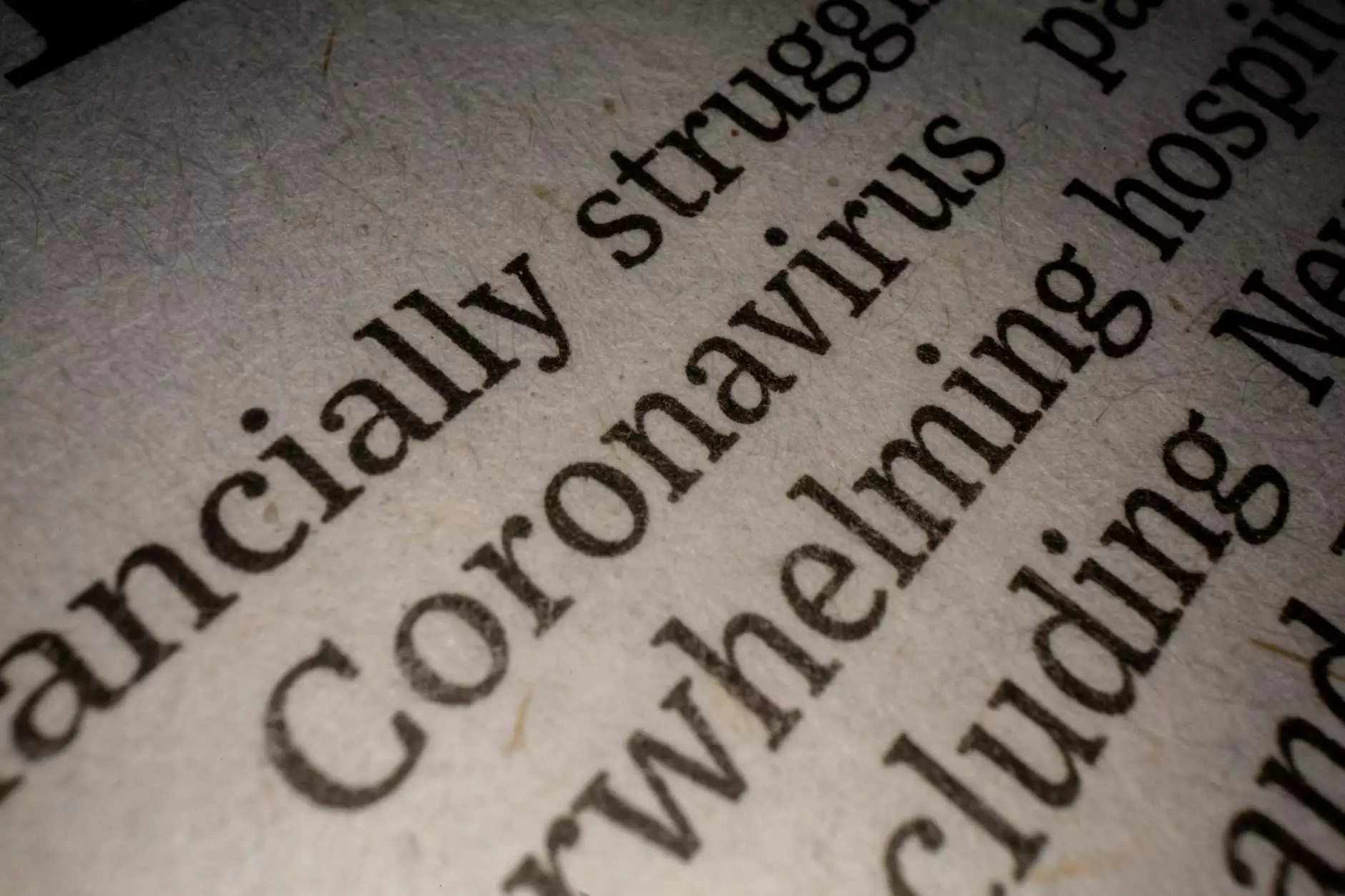Animal Assisted Therapy at Gillette

Introduction
Welcome to Foley James D MD, your trusted healthcare provider in the field of Animal Assisted Therapy. We understand the healing power that animals possess, and we have harnessed this power to enhance patient outcomes. Through our innovative approach to therapy, we have witnessed remarkable transformations in patients across a range of medical conditions.
What is Animal Assisted Therapy?
Animal Assisted Therapy (AAT) is a therapeutic approach that involves trained animals as part of the treatment process. These animals, primarily dogs, cats, and horses, work alongside healthcare professionals to provide emotional support and assist in the recovery of individuals with various medical conditions.
The Benefits of Animal Assisted Therapy
Animal Assisted Therapy has been proven to have numerous benefits for patients, both physical and emotional. Here are some of the key advantages:
1. Emotional Well-being
Interacting with animals has a profound impact on emotional well-being. Animal companionship can provide comfort, reduce anxiety, and alleviate feelings of loneliness or depression. The unconditional love and non-judgmental nature of animals create a safe and nurturing environment for patients.
2. Physical Rehabilitation
Animals can play a crucial role in physical rehabilitation. Engaging in activities such as petting, grooming, or walking with animals can help improve motor skills, range of motion, and coordination. Additionally, animals can act as motivators, encouraging patients to engage in therapy and reach their goals.
3. Stress Reduction
Interacting with animals can significantly lower stress levels. The presence of animals has been shown to reduce blood pressure, heart rate, and cortisol levels, promoting relaxation and overall well-being. Patients often experience a sense of calmness and serenity during animal-assisted therapy sessions.
4. Enhanced Social Skills
Animals provide a unique platform for individuals to improve their social skills. Interacting with animals can help patients develop empathy, communication, and bonding skills. This can be particularly beneficial for individuals with conditions such as autism or social anxiety.
5. Distraction from Pain
Therapeutic interactions with animals can serve as a distraction from physical pain or discomfort. The presence of animals can redirect patients' focus, providing a temporary respite from their ailments and creating a positive and joyful environment.
Our Approach to Animal Assisted Therapy
At Foley James D MD, we are committed to delivering the highest standard of Animal Assisted Therapy. Our team of trained professionals works closely with carefully selected animals to create personalized treatment plans tailored to each patient's unique needs.
1. Assessment and Planning
Prior to commencing therapy, our team conducts a thorough assessment of the patient's medical history, condition, and treatment goals. This enables us to design a customized plan that incorporates animal-assisted interventions and addresses the specific needs of the individual.
2. Animal Selection and Training
We work with a diverse range of animals, ensuring that we match each patient with the most suitable and well-trained therapy animal. Our animals undergo rigorous training to ensure they are calm, friendly, and responsive to human interaction. Their health and temperament are closely monitored to ensure the utmost safety and effectiveness of the therapy sessions.
3. Therapy Sessions
Our therapy sessions are conducted in a comfortable and inviting environment. Patients engage in various activities with the therapy animals, guided by our trained professionals. These activities may include petting, grooming, walking, or simply spending time in the animals' presence. Each session is tailored to meet the specific therapeutic goals and needs of the patient.
4. Tracking Progress
We continuously monitor and evaluate the progress of our patients throughout their therapy journey. Regular assessments are conducted to measure improvements in physical functioning, emotional well-being, and overall quality of life. Adjustments to the treatment plan are made as necessary to ensure optimal outcomes.
Conclusion
Animal Assisted Therapy at Gillette, provided by Foley James D MD, offers a unique and effective approach to improving patient outcomes. With the healing power of animals, we strive to enhance emotional well-being, facilitate physical rehabilitation, reduce stress, foster social skills, and alleviate pain. Experience the transformational benefits of Animal Assisted Therapy with us and embark on a journey of healing and growth.



